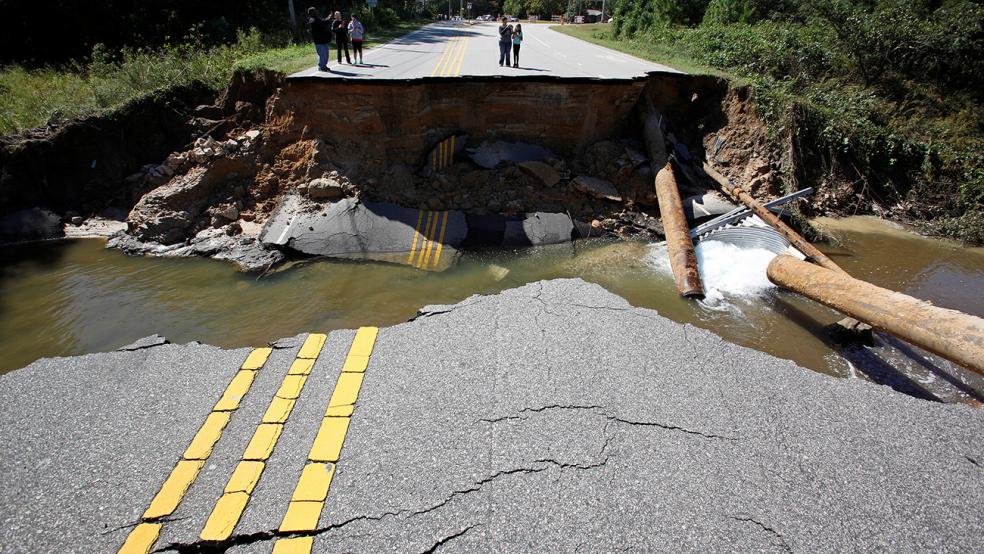President Joe Biden on Monday asked Congress to provide $98.4 billion in emergency funding in response to a host of natural disasters, including Hurricanes Helene and Milton this past fall.
The funds would flow to 16 federal agencies, with the majority going to the Federal Emergency Management Agency and Agriculture Department. In addition to the recent hurricanes in the Southeast, the emergency funds would aid the federal response to the wildfires in Maui, tornadoes in the Midwest and the collapse of the Francis Scott Key Bridge in Baltimore.
In a letter to House Speaker Mike Johnson, Biden called on lawmakers to act without delay. “I urge the Congress to act quickly to pass a supplemental funding package to assist communities impacted by these hurricanes — and every other disaster since the Congress last passed a comprehensive disaster package in 2022 — so that the people, families, businesses, and communities affected have the support they need to respond, recover, and rebuild responsibly.”
The specific requests include $40 billion for FEMA’s disaster relief fund, which Biden said is at risk. “Without additional funding, the DRF will face a shortfall this fiscal year, which will impact FEMA’s ability to provide life-saving and life-sustaining assistance to disaster survivors, as well as slow recovery from ongoing and prior disasters,” Biden wrote.
Per Jennifer Shutt of States Newsroom, other requests include:
* $24 billion for the Department of Agriculture to aid farmers who were victims of recent disasters, boost pay for wildland firefighters in the U.S. Forest Service, and enhance the emergency response of federal food programs;
* $12 billion for Community Development Block Grant Disaster Recovery programs at the Department of Housing and Urban Development;
* $8 billion for road and bridge repair through the Department of Transportation;
* $4 billion for cleanup and water system upgrades overseen by the Environmental Protection Agency;
* $ 3 billion for the Health and Human Services Department, which would be used in part to build up supply chains for medical products;
* $2 billion for low-interest loans administered by the Small Business Administration;
* $2 billion for economic grants administered by the Commerce Department, as well as three new airplanes used for weather research;
* $1 billion for the Education Department to assist schools in areas hit by disasters;
* $1 billion for the Energy Department to rebuild and enhance electrical grids in areas hit by hurricanes and the Maui fire;
* $500 million to reimburse the Army Corps of Engineers for its work on the Francis Scott Key Bridge in Baltimore.
A record-breaking year: FEMA Administrator Deanne Criswell told reporters Monday that the agency had responded to 172 natural disasters so far in 2024, far more than the 114 disasters in 2023. “Hurricane Beryl became the earliest Category 5 storm to form in the Atlantic and Hurricane Helene has devastated six states,” Criswell said. “We saw the second-busiest spring tornado season ever recorded. And we've seen, overall, a 50% increase in disaster activity.”
A tight schedule: There are just a few weeks left in the calendar year for Congress to act on an emergency funding package, but there is widespread agreement on the need to move quickly. Multiple committees will hold hearings this week to review funding needs and the response to recent disasters by FEMA. After the Thanksgiving break, lawmakers will need to decide on how to address the supplemental spending request, with options including a standalone bill and folding the funding into a larger year-end spending package.
Budget
Biden Requests $98 Billion for Disaster Relief

© Jonathan Drake / Reuters



